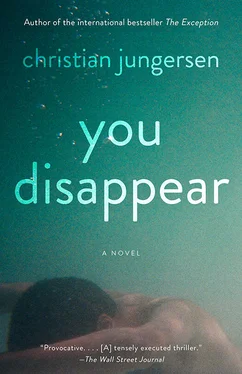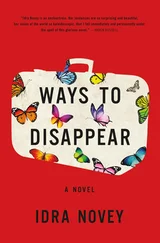By contrast, your reaction to the man who is neurologically abnormal should provide some indication of where our culture will stand in 20 years — and not only with respect to violence and alcoholism, but also with respect to countless other human traits that will be mapped out in the brain by that time.
Many of us would feel a certain sympathy for this man if we knew he was an unwilling victim of his neurological flaws. (How awful it must be, to be relentlessly compelled to hurt the ones you love!) We would be inclined to forgive him — for after all, the doctors have said that he can be expected to behave at least as horribly as he does. Perhaps it has required an extraordinary effort on his part simply not to murder his family. He’s pulled himself together and done the best he could.
AT THE SAME TIME, the matter is more complicated than that. If no pharmaceutical treatments have been developed yet for the neurologically abnormal man , we will do everything we can to keep him away from our workplace and prevent him from marrying into our circle of family and friends. For his brain will not permit him to get any better.
The opposite is true of the neurologically normal man . Maybe he speaks the truth when he says that he deeply regrets the way he has been and that he has turned over a new leaf. We cannot know, for the brain he has could get him on the right track. Should he not have a chance?
In this way, our society risks becoming much more callous in its treatment of deviants — and only because we are learning more about ourselves and our brains. On the surface, this inevitable evolution in our view of human nature is making us more generous. Yet underneath it we risk becoming merciless and incompassionate. If we no longer consider some people to have free will when it comes to beating or not beating their spouses and children, do we still think of them as human at all? Can’t we just expel them then from all social contexts — families, workplaces, etc.?
GRADUALLY, as we become accustomed to new ways of looking at ourselves and others, it also becomes natural for us to think that there must be some hidden reason for why the second man hits his wife and children. No one really wants to be that way voluntarily, does he? Might he be a victim of childhood trauma, a personality disorder, or some neurological deviance that science simply isn’t capable of showing on a brain scan yet?
And aren’t the two men subject in the same degree to neurological processes beyond their control, even though the processes can only be detected in one of them? Surely that must be the case. Don’t both of them deserve the same forgiveness and compassion?
And what about us?
Aren’t even the most apparently healthy people simply unwilling
(cont. on p. 64)
I’m on my way home from school. In a little while, I’ll find Frederik in our bed. He’s been lying there for more than a week with the curtains drawn. He might lie like that for months or years to come.
As soon as I get home, I’ll drink a couple of cups of tea, eat a couple of open-face sandwiches, and lie down beside him. That’s what I’ve done every day of the past week, and every day I remain there until the world forces me to get up again.
But I’m not home yet. My car is stopped for a red light on Mayor Jespersen Road, and I’m thinking about the days Bernard and I have spent together: the phone conversations, the texts, the brief meetings.
One day we walked through Østerbro from the office of the public prosecutor for serious financial crimes. The sun was low and the light sharp and red, making the quarter’s monotone rust-brown high-rises seem luminous. Why does everything light up that way? That’s what I remember wondering. Why isn’t it just reds that get a boost of color from the afternoon light? The wrapper of a chocolate bar, a dark green bench, the remnants of a dandelion between the paving stones — why does everything glow ?
Bernard was wearing one of his grey suits, and he talked about his twin sons. At the boarding school they were attending for the final year before gymnasium, one of them had developed a passion for astronomy. There was a telescope at the school, and three of the boys and the math teacher were using a computer program to look for signs of life in the universe.
While Bernard spoke, he forgot all about Frederik’s case, he forgot about me, he forgot the streets. There was no doubt in my mind that he was a good father.
And besides the things we talked about, besides the luminous buildings around us, there were our bodies. Their harmony as we walked together down the sidewalk at an inconspicuous distance. The even rhythmic click of our heels on the paving stones. The feeling that spread throughout my body: that it was good to walk like this, next to his body.
Just think if Niklas had had a father like Bernard. Then I wouldn’t have needed to keep secrets from him when he was small, about his father’s lechery at school. I wouldn’t have needed to throw his father out on his ear or drink myself blind. Niklas wouldn’t have found me and had to call to have my stomach pumped. It’s impossible to imagine what our relationship could have been like.
I’m on the overpass that crosses the freeway, almost home now, and I recall another time sitting here in the car on my way from work, talking to Bernard on the phone about my day. He told me about his own day, on his way home to Lærke in his car, and just as I reached Station Road, we started talking about a trip he’d taken once as a student. Three law students traveling together, staying in a cottage in some community garden outside East Berlin. They were into the local raves, which were huge back then in the years after the Wall fell.
“I was pretty wild when I was young,” he said.
“Wild?” Perhaps I sounded startled. “But you were already with Lærke back then, weren’t you?”
“Well yeah. Not wild in that way.”
• • •
I throw my school bag onto the small table in the entry and call out, “I’m home!” like I usually do.
Frederik doesn’t answer. I turn on the electric kettle and go upstairs.
The bed’s empty. I walk quickly, almost at a run, to the workshop. He isn’t there either.
“Frederik! Frederik!”
Has he left a note behind, a letter? I run back to the bedroom, down to the living room, back to the kitchen, out into the yard. No letter, no Frederik.
On our patio I stand completely still, listening to sounds from the neighboring yards, feeling the pulse in my temples. Will today be the day I’ve been fearing, ever since he began lying in bed and moaning for hours at a time? Since he first said that he’d destroyed everything and just wanted to die?
The yard’s as still as I am. The silver-white undersides of the leaves on the tall poplars next door don’t so much as stir.
And just the way you always hear cops state the exact time when they arrest someone, I hear the basic facts being recited in my ear: There is no wind, it is cooler than normal for the season, there is moisture in the air. I am standing on the patio of our silent yard. Frederik is dead .
No one can know how it must’ve felt for him, for the first time in ages, to reproach himself for something. For the first time since a tumor changed everything. How does guilt feel the very first time? Or empathy for another person? How does it feel to realize in a blinding flash that you’ve ruined the lives of everyone around you?
I call Niklas, who is at Mathias’s with some friends, but he hasn’t seen or heard from his father. I manage to sound calm on the phone, though I can hear the thudding of my heart. Niklas sounds calm too, and I don’t think it’s an act. He has no sense of the danger; he hasn’t been home during the afternoons when Frederik’s at his most inconsolable.
Читать дальше



![Ally Carter - [Gallagher Girls 01] I'd Tell You I Love You But Then I'd Have to Kill You](/books/262179/ally-carter-gallagher-girls-01-i-d-tell-you-i-lo-thumb.webp)








